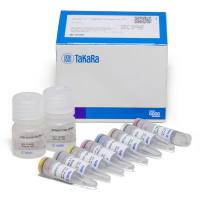Screening for Mutations in the Human Antithrombin Gene by Hydrolink D-5000 and MDE Gel Electrophoresis
互联网
378
The polymerase chain reaction (PCR) provides a rapid method for generating a large amount of a defined region of DNA without recourse to cloning. However, direct sequencing of this amplified material is tedious, time-consuming, and frequently generates large amounts of normal sequence data. Based on the PCR technique, a number of screening methods for detecting DNA mutations have been developed and a number of these are described in this volume. Many of these techniques are dependent on the formation of heteroduplexes during the amplification reaction, i.e., mixed double-stranded DNA molecules in which one strand is derived from the normal allele and the other from the mutant or altered allele. The heteroduplexes can exhibit a variety of changes in their physical properties and can be readily detected by a variety of techniques. In the many cases, such heteroduplexes can be detected without the use of radiolabeling.









